10 Best Langotalk Alternatives to Learn English
Langotalk is a popular platform for contextual and collaborative English practice, but learners often seek alternatives to explore different features, learning styles, or pricing.
This article presents 10 of the best Langotalk alternatives, highlighting each tool’s unique strengths, target users, and learning approach.
Top 10 Langotalk Alternatives
- Midoo AI
- Speak
- Loora
- Praktika
- Lucida AI
- Learna AI
- Fluently
- Toko
- Speak Pal
- ELSAspeak
1. Midoo AI – Dynamic, Interactive Language Learning
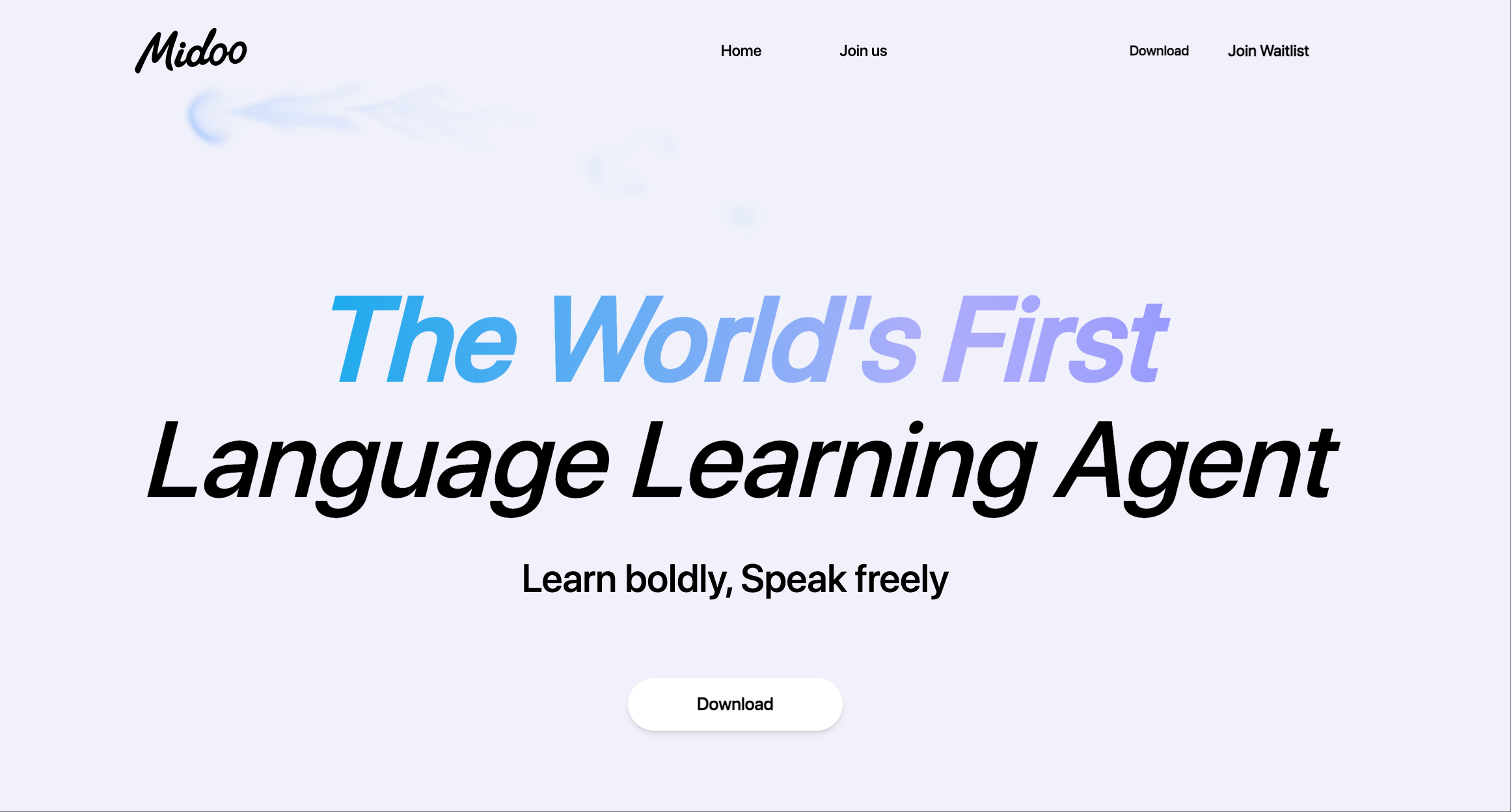
Midoo AI transforms language practice into a highly interactive experience. Instead of static lessons, it generates spontaneous conversations that react to your input, creating a sense of real-world dialogue. Users engage in diverse scenarios, from casual chats to professional meetings, keeping practice varied and exciting.
The platform integrates mini-challenges, interactive prompts, and adaptive feedback that guides learners subtly. It balances correction with encouragement, helping learners build confidence while experimenting with language. Gamified elements and contextual hints make sessions engaging and rewarding.
Midoo AI also tracks progress over time, highlighting improvements in vocabulary, pronunciation, and conversational flow. The combination of adaptability, immersive interaction, and structured guidance makes it suitable for learners aiming for consistent, long-term improvement.
Pros:
- Immersive, adaptive conversations
- Scenario-based interactive exercises
- Contextual, constructive feedback
- Gamified, engaging learning experience
Cons:
- Requires stable internet
Accelerate your English skills with Midoo AI — start practicing now and gain real confidenc
2. Speak – Focused AI Speaking Practice
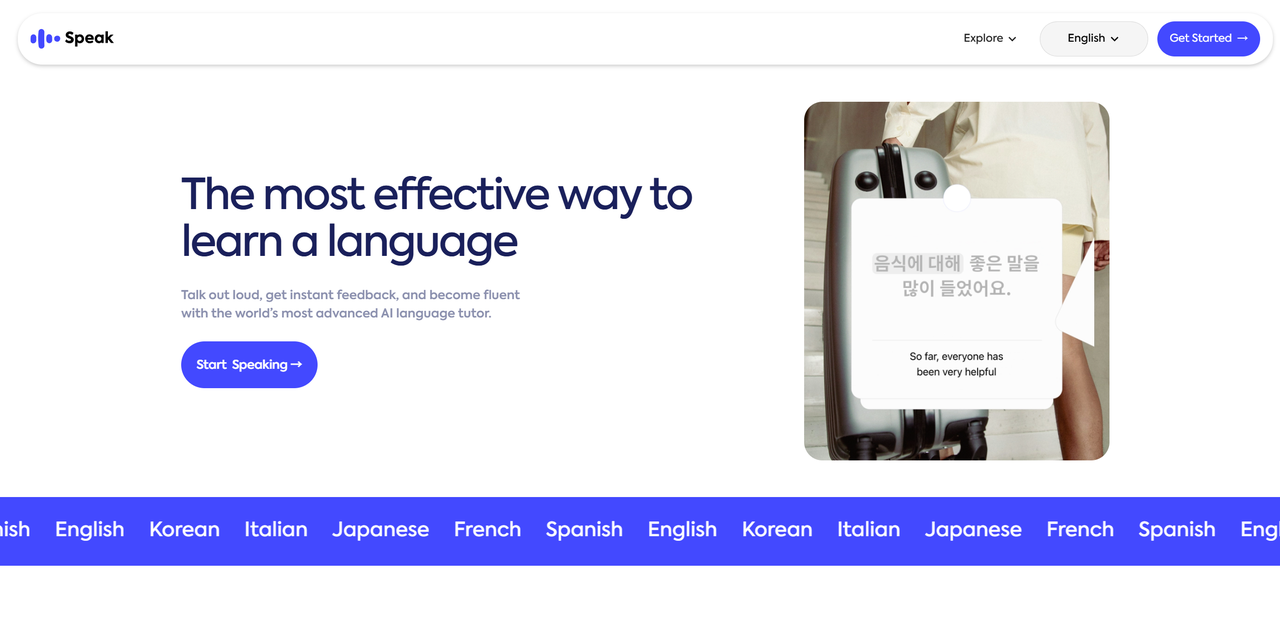
Speak provides scenario-based exercises designed for practical conversation. Users practice dialogues like ordering in restaurants or business discussions, receiving immediate pronunciation and fluency feedback.
Its adaptive lessons allow learners to progress gradually, from simple exchanges to complex dialogues. The AI offers hints and alternative phrasing to reinforce natural usage.
Ideal for busy learners wanting concise, flexible practice sessions.
Pros:
- Real-time pronunciation feedback
- Broad topic coverage
- Flexible lesson length
Cons:
- Limited grammar instruction
- Less suited for absolute beginners
3. Loora – 24/7 AI English Coach
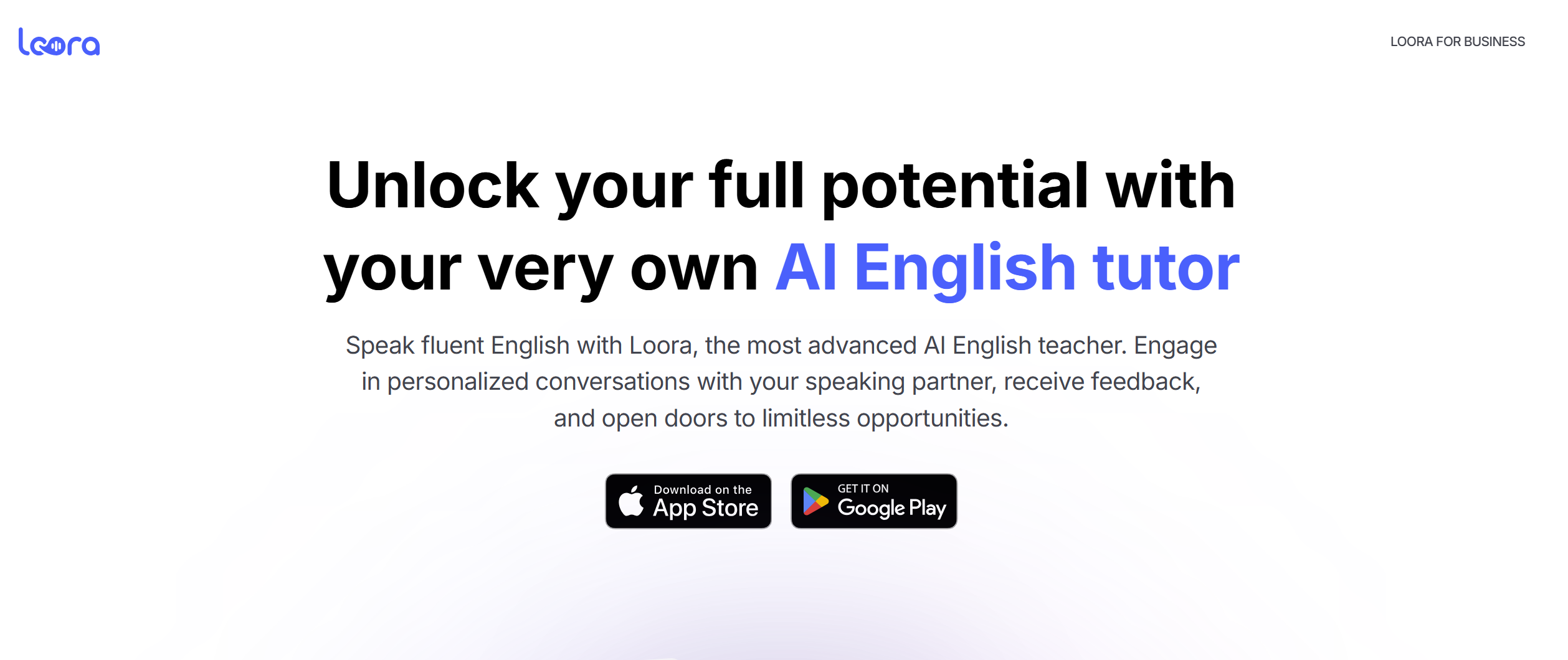
Loora offers round-the-clock AI tutoring, allowing learners to practice anytime. Conversations cover casual topics, current events, or interview simulations, making sessions diverse and engaging.
Natural dialogue flow encourages learners to think and respond in English, while adaptive difficulty ensures steady progression.
Best for learners seeking consistent practice without scheduled lessons.
Pros:
- Unlimited practice sessions
- Adaptive topic suggestions
- Flexible pacing
Cons:
- No offline mode
- Less grammar-focused content
4. Praktika – Immersive Role-Play Learning
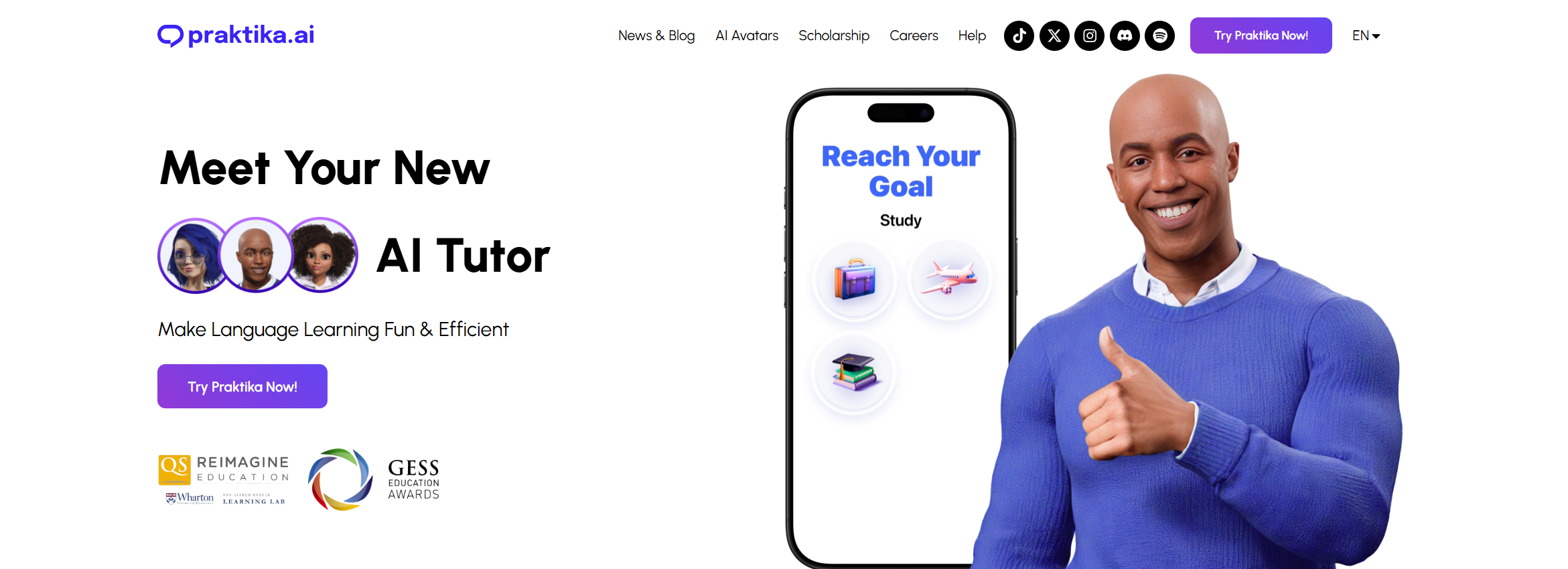
Praktika uses lifelike avatars and scenarios to simulate real-world conversations, from social interactions to professional presentations.
Gentle AI feedback maintains dialogue flow, helping learners practice naturally. Interactive elements keep learners engaged.
Ideal for visual learners and those preparing for exams or professional contexts.
Pros:
- Lifelike role-play scenarios
- Engaging interface
- Supportive feedback
Cons:
- Requires stable internet
- Limited writing exercises
5. Lucida AI – Pronunciation and Accent Focus

Lucida AI specializes in accent and pronunciation refinement with real-time scoring and targeted drills.
It provides cultural context for expressions, helping learners use English appropriately in different situations. Lessons adapt to difficulty levels.
Suitable for learners focused on professional or academic speaking standards.
Pros:
- Accurate pronunciation guidance
- Cultural insights
- Targeted exercises
Cons:
- Limited multi-skill coverage
- Interface slightly complex
6. Learna AI – Adaptive Learning Paths

Learna AI tailors lessons based on performance, emphasizing weak areas for efficient progress.
It combines speaking, listening, and grammar exercises in progressive levels, allowing gradual mastery.
Best for intermediate learners seeking structured but flexible guidance.
Pros:
- Adaptive lessons
- Multi-skill coverage
- Targeted practice
Cons:
- Minimal conversation role-play
7. Fluently – Social Conversation Platform
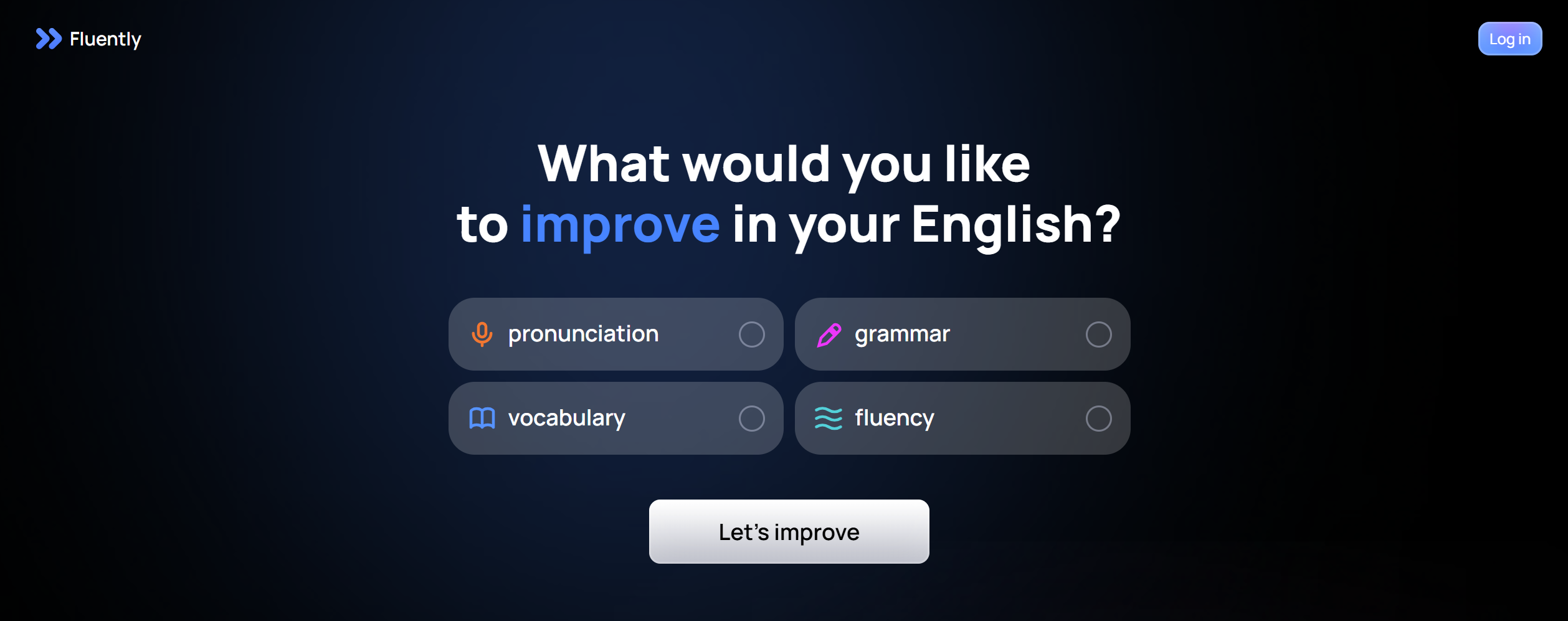
Fluently merges AI guidance with peer interaction, letting learners practice in social settings.
AI corrects errors during peer chats, while gamified features sustain motivation.
Ideal for learners who enjoy collaborative, community-driven practice.
Pros:
- Peer + AI practice
- Real-time corrections
- Engaging community
Cons:
- Less formal structure
8. Toko – Vocabulary-Focused Speaking
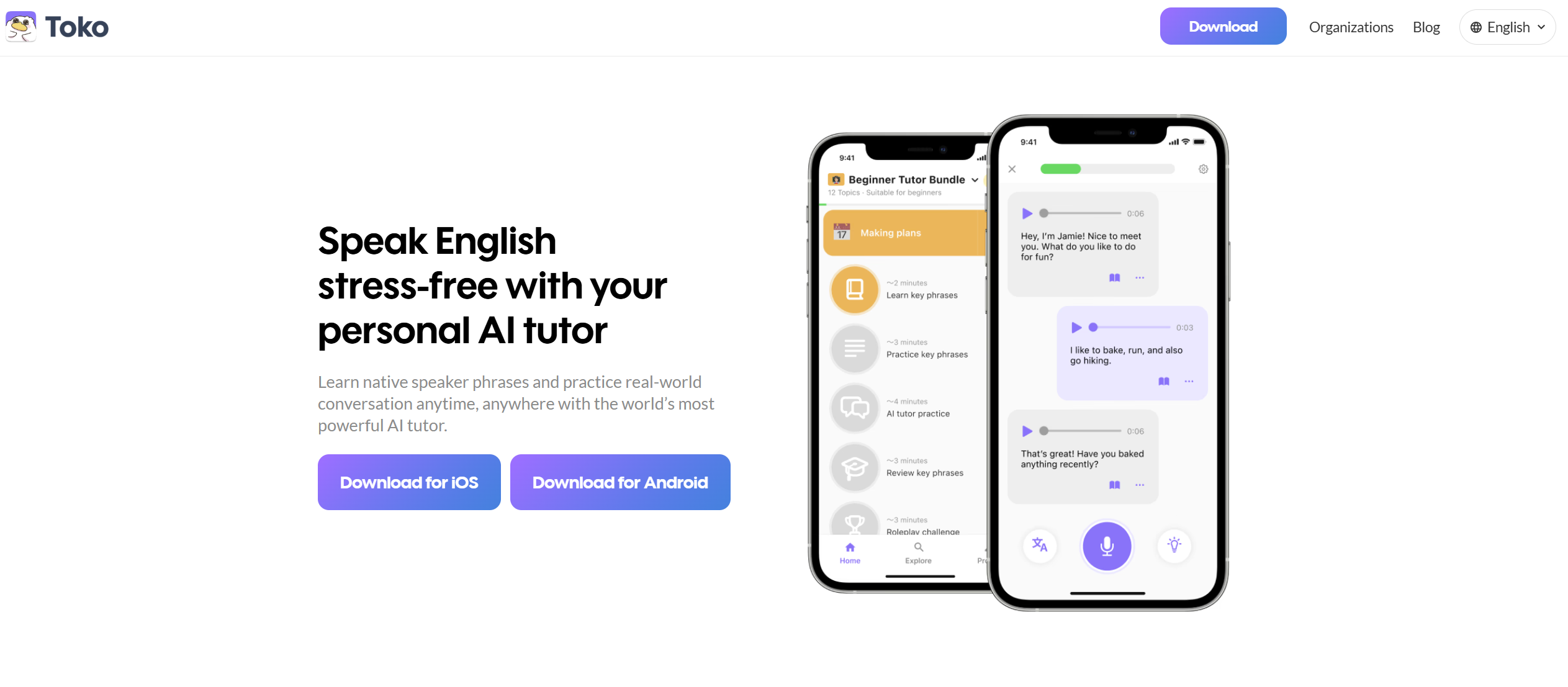
Toko emphasizes practical vocabulary through short, contextual speaking drills.
Each session encourages immediate use of new words, improving retention and fluency.
Perfect for learners seeking quick, targeted practice.
Pros:
- Vocabulary-focused
- Short, practical sessions
- Thematic exercises
Cons:
- Limited grammar training
9. Speak Pal – Casual and Professional Practice
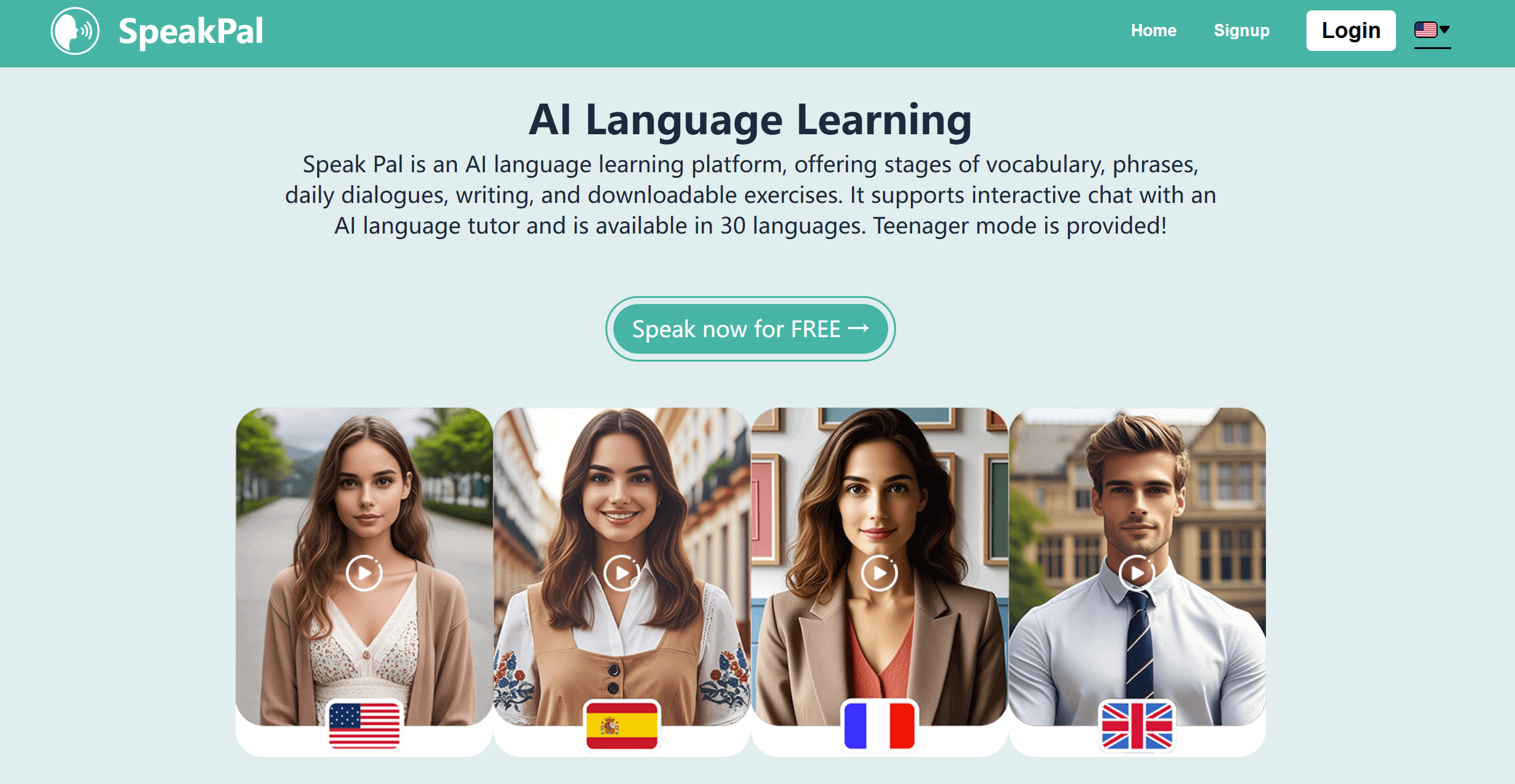
Speak Pal adapts to your tone and pace, offering conversations for both casual and business settings.
Topics range from daily life to office meetings, making practice flexible and relevant.
Suitable for learners wanting practical, on-demand conversation.
Pros:
- Easy to start
- Adaptive pacing
- Versatile topics
Cons:
- Limited writing exercises
10. ELSAspeak – Precision Pronunciation Trainer
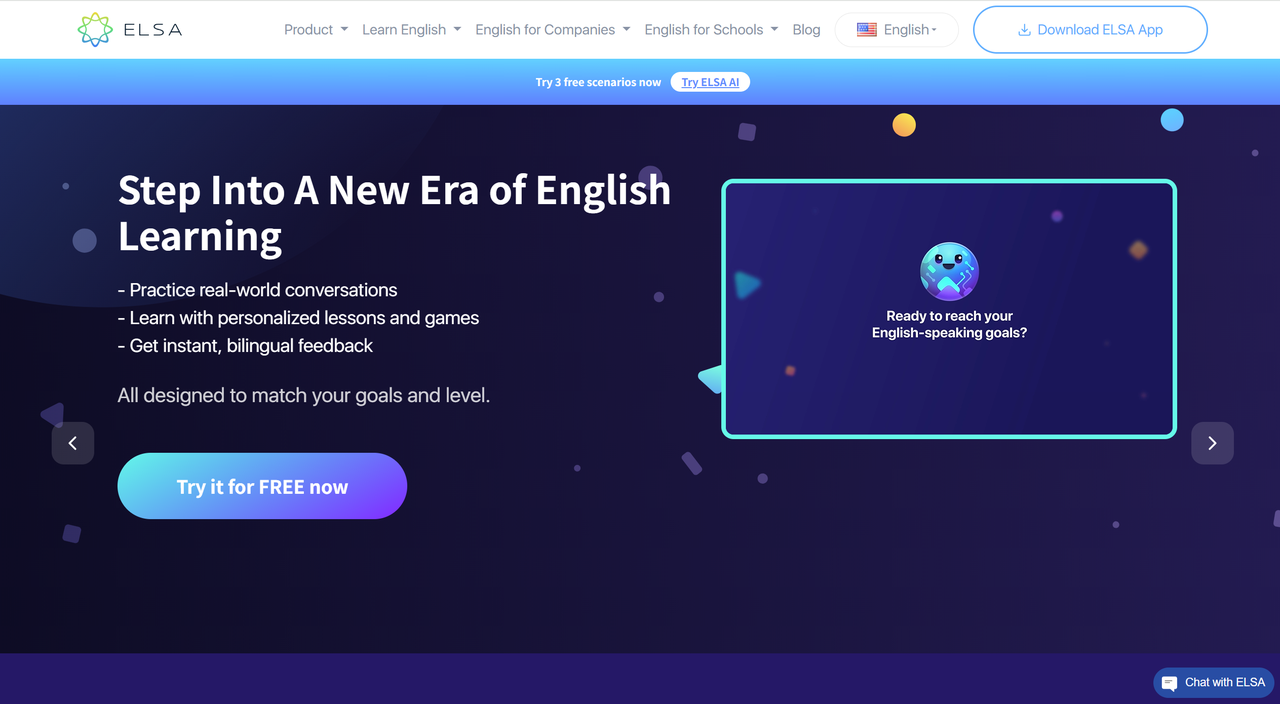
ELSAspeak focuses on accurate pronunciation, providing phoneme-level feedback and progressive exercises.
Structured lessons target stress, intonation, and problem sounds, helping learners improve clarity.
Best for learners preparing for exams, presentations, or accent reduction.
Pros:
- Accurate pronunciation feedback
- Progressive drills
- Exam-oriented
Cons:
- Mainly pronunciation-focused
Conclusion
Among these Langotalk alternatives, Midoo AI stands out for its immersive, adaptive conversations, scenario-based exercises, and gamified, engaging learning approach. Its flexibility and personalized guidance make it ideal for learners seeking consistent, long-term improvement.